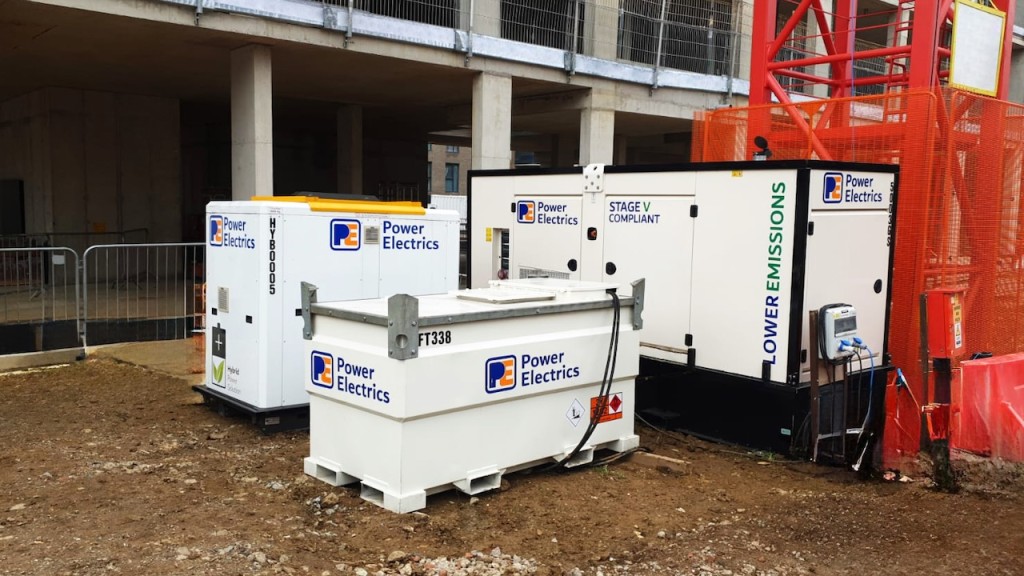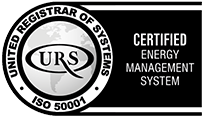This blog is aimed at answering the growing challenge of providing sustainable temporary power for construction sites.
In today’s rapidly evolving construction industry, one of the greatest challenges project managers face is how to provide sustainable and reliable temporary power for their sites. For decades, the answer was simple: bring in traditional diesel generators. However, as the focus on sustainability grows, the demand for more eco-friendly solutions has led to the development of innovative alternatives, including Stage V generators, Battery Energy Storage (BES) units, and alternative fuels like Hydrotreated Vegetable Oil (HVO). This shift in technology represents an important step forward for construction managers who are seeking greener solutions without compromising on performance.
The rise of stringent regulations such as NRMM (Non-Road Mobile Machinery) legislation, and the implementation of low-emission zones across major UK cities have intensified the need for more sustainable power options. These rules target the reduction of harmful emissions from construction machinery, including diesel generators, making compliance a key priority for any construction project. As such, opting for Stage V generators, which meet the highest European emissions standards, is becoming a vital component for ensuring projects stay both legally compliant and environmentally responsible.
Sustainability is no longer just a trend in construction–it’s a core business requirement. Decision-makers are increasingly prioritising eco-friendly power solutions to not only reduce their carbon footprint but also to enhance operational efficiency. This blog will explore five actionable strategies that can significantly improve the sustainability of your construction site’s power infrastructure, helping you meet today’s environmental and regulatory demands while also supporting the long-term growth of your projects. Whether you’re looking to transition to Stage V generators, understand the NRMM regulations more clearly, or explore cutting-edge alternatives like BES units, this guide will provide valuable insights tailored to your needs.
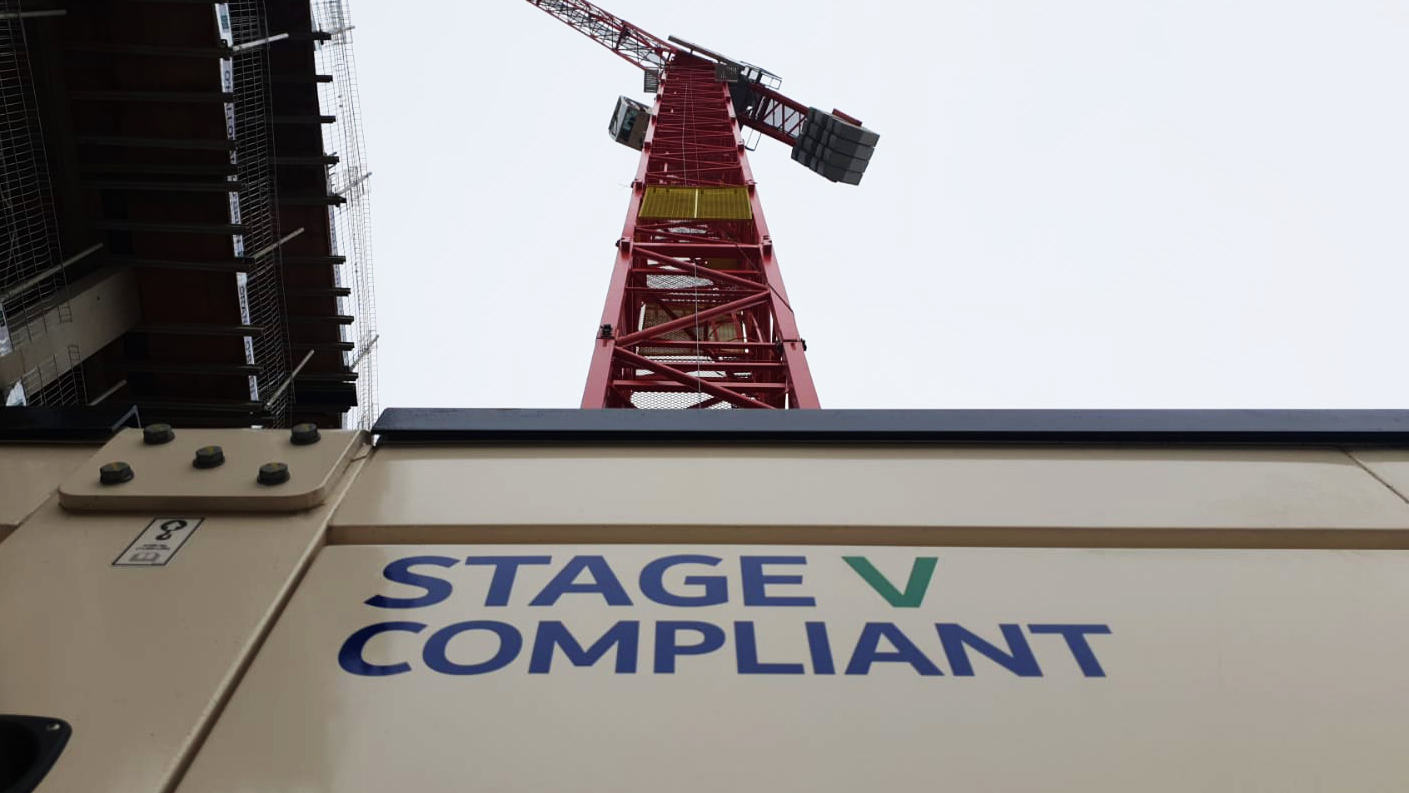
1. Choose Modern Stage V Generators
At Power Electrics, we’re committed to helping our customers meet both regulatory and sustainability targets by offering an extensive fleet of Stage V generators. These new machines are specifically designed to comply with the stringent EU Stage V emissions standards, which focus on reducing harmful pollutants such as carbon monoxide, particulate matter, nitrogen oxides, and hydrocarbons. For construction sites operating in low-emission zones or under strict NRMM (Non-Road Mobile Machinery) legislation, Stage V generators are an essential solution for minimising environmental impact while maintaining reliable power output. To find out more about our fleet of modern and lower-impact generators, click the link below.
Stage V generators are equipped with advanced engine technology and after-treatment systems designed to significantly reduce harmful emissions. These generators use a combination of Diesel Particulate Filters (DPF) and Selective Catalytic Reduction (SCR) systems to meet the stringent EU Stage V emission standards. The DPF captures and eliminates particulate matter, while the SCR system converts nitrogen oxides (NOx) into harmless nitrogen and water through the use of a urea-based solution, commonly known as AdBlue. Additionally, improved combustion technology in Stage V generators ensures that fuel is burned more efficiently, reducing both the overall fuel consumption and the release of carbon monoxide and hydrocarbons on construction sites. You can learn more about Stage V generators by reading our blog on the topic here.
2. Correct Generator Sizing
Choosing a sustainable power solution for your construction project is not just about selecting environmentally-friendly equipment; it’s equally important to ensure the generator you choose is correctly sized for your power needs. The right generator size can make a significant difference in the efficiency, cost-effectiveness, and environmental impact of your project. An undersized generator may struggle to meet your power demands, leading to operational inefficiencies, equipment strain, and potential delays. On the other hand, an oversized generator will lead to low-loading which is bad for the generator and can lead to breakdowns and a temporary power outage. An oversized generator will also consume more fuel than necessary, leading to increased emissions and higher operating costs – two factors that directly oppose the goal of sustainability.
At Power Electrics, we have over 60 years of expertise in providing tailored power solutions, and take a detailed approach to generator sizing, considering factors such as your site’s specific power requirements, peak load times, and potential energy-saving opportunities. By selecting the optimal generator size, you can minimise fuel consumption, cut costs and reduce your carbon footprint. Have a read of our Generator Sizing blog to learn more.
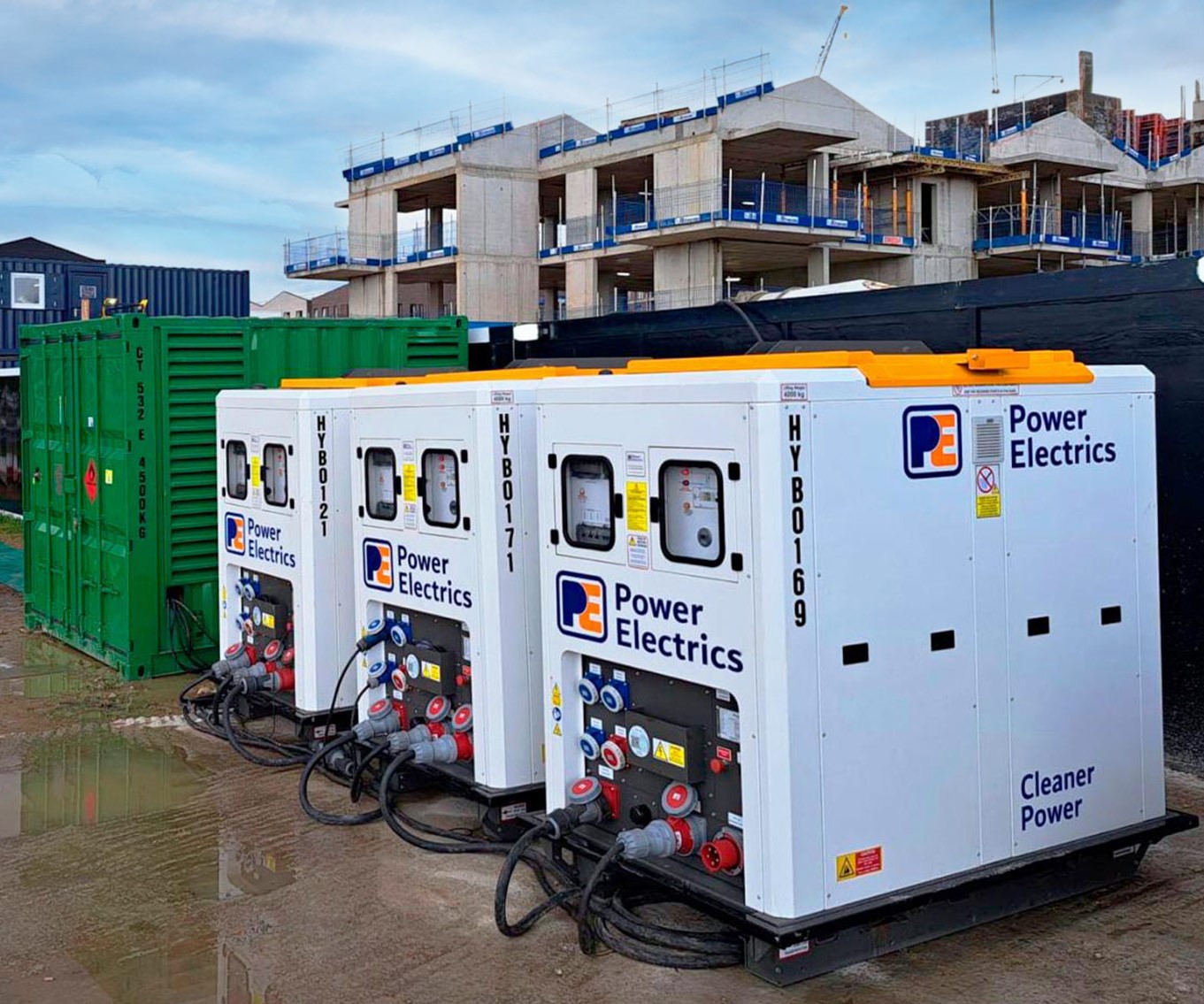
3. Utilise BES Units for Efficient Generator Operation
Marrying Battery Energy Storage (BES) units with diesel generators is an effective approach to optimising temporary power solutions, offering significant environmental and operational benefits. We provide cutting-edge BES units that work seamlessly alongside diesel generators to enhance power management on construction sites across the country. This hybrid power solution allows you to store excess energy generated during periods of low demand and utilise it when your site requires less power, such as during overnight or off-peak hours.
The BES unit effectively reduces generator runtime, leading to lower fuel consumption, fewer emissions, and a quieter operational environment – key factors in supporting both sustainability goals and community relations. You can learn more about how battery energy storage units work and their benefits by reading our Ultimate Guide to BES units.
By leveraging BES units, construction sites can operate more efficiently, particularly in urban or sensitive environments where noise pollution and emissions are tightly regulated. The ability to store energy also makes these systems ideal for peak shaving, where stored power can be used during times of high demand, thus avoiding overloading generators or relying on additional units. This not only cuts down on emissions but also contributes to significant cost savings by reducing fuel usage and maintenance requirements for the generators. For projects that require a focus on environmental responsibility, BES units are a critical component of a more sustainable power strategy. If you’re interested in incorporating a Battery Energy Storage Solution into your next project, reach out to our team at the link below.
4. Promote Energy Conservation Culture
At Power Electrics, we understand that achieving sustainable power solutions goes beyond choosing the right equipment – it’s about fostering an energy conservation culture on your construction site. Promoting energy-saving practices among your team is a critical step in reducing both your environmental impact and operational costs. By creating an energy-conscious work environment, every individual can contribute to the overall efficiency of your project. Simple actions such as turning off heaters, lights, and equipment when not in use, or only boiling the amount of water needed for a kettle, can collectively make a significant difference in generator usage and fuel consumption and emissions.
Training teams to be mindful of their energy use is not only about cutting costs; it supports the goal of lowering a site’s carbon footprint. Encouraging staff to adopt eco-friendly habits helps ensure that sustainable practices become second nature, promoting long-term energy efficiency.
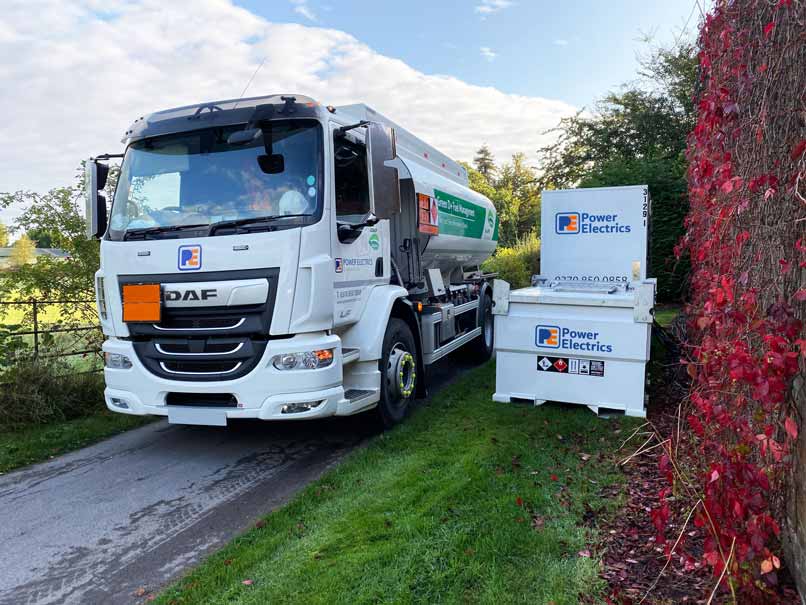
5. HVO Diesel-Alternative Fuel
Power Electrics offers high-grade Hydrotreated Vegetable Oil (HVO) fuel, this renewable fuel provides the same performance as conventional diesel and can lower your site’s carbon emissions, nitrogen oxides and particulate output. The diesel alternative fuel delivers the same high-performance reliability as conventional diesel while reducing your site’s environmental impact. HVO is produced from renewable and sustainable feedstocks, such as waste vegetable oils and animal fats, making it a cleaner option for powering your generators without sacrificing efficiency or output. By switching to HVO fuel, construction sites can lower their carbon emissions, reduce nitrogen oxides (NOx), and cut particulate matter emissions.
HVO fuel is a drop-in replacement for traditional diesel, meaning no modifications to your existing diesel generators are required. This makes it a seamless solution for sites that are looking to reduce their carbon footprint quickly and easily. Whether you’re operating in urban low-emission zones or remote locations, HVO offers a versatile and eco-friendly solution for temporary power that aligns with sustainability goals.
In the ever-evolving construction industry, the need for sustainable, environmentally friendly temporary power solutions has become a top priority for project managers and decision-makers. As we’ve explored in this blog, opting for modern technologies like Stage V generators, Battery Energy Storage (BES) units and Hydrotreated Vegetable Oil (HVO) fuel can drastically reduce the environmental impact of your construction projects. These solutions not only help you comply with regulations such as the NRMM (Non-Road Mobile Machinery) legislation but also promote operational efficiency and long-term cost savings.
Additionally, fostering an energy conservation culture on-site ensures that your team actively contributes to reducing generator runtime, and as a result, fuel consumption and emissions. Simple changes in behaviour, combined with cutting-edge equipment and fuel choices, can create a significant positive impact on both the environment and your construction project’s performance.
At Power Electrics, we are dedicated to providing environmentally-friendly temporary power solutions tailored to your needs. From expert generator sizing to integrating hybrid BES systems, we are your partner in achieving sustainable power management. Reach out to us today at the link below to discover how we can support your journey towards greener, more efficient construction projects.
Journey to Green
Power Electrics has invested heavily over the last few years in greener temporary power equipment, providing expert solutions that not only reduce environmental impact with the same reliability but can even offer cost efficiencies. You can read about our investment of GBP8m in hybrid battery energy storage units here and our investment of over GBP5m in Stage V units here.
Power Electrics’ Journey to Green initiative is a comprehensive commitment to reducing both their own environmental impact and that of their customers. If this sounds good, why not have a read of our 2023 Journey to Green Annual Sustainability report. If you have any questions or would like to speak with one of our team about our Journey to Green, you can click the link below to speak with on of our team today.
